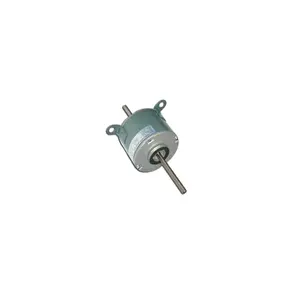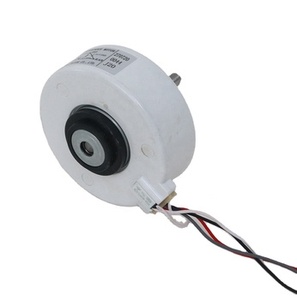Understanding Insulation Class B Electric Motors
Insulation Class B electric motors are integral components in various industrial applications, known for their efficiency and robustness. Designed to operate at elevated temperatures, these motors ensure reliability and longevity in demanding environments. In this article, we will delve into different facets of Insulation Class B electric motors, covering their types, features, applications, and advantages.
Types of Insulation Class B Electric Motors
Insulation Class B electric motors come in a variety of types, each tailored for specific functions and operational needs. Understanding the different types can help businesses choose the right motor for their applications.
- Induction Motors: These are the most common types of electric motors, widely used in industrial applications for their simple design and durability.
- Permanent Magnet Motors: These motors utilize permanent magnets to create the magnetic field, achieving higher efficiency and compact size.
- DC Motors: Known for their high starting torque and precise speed control, DC motors are suitable for various specialized applications.
- Universal Motors: These versatile motors can operate on both AC and DC, making them ideal for portable power tools and appliances.
Features and Functionality of Insulation Class B Electric Motors
The design and features of Insulation Class B electric motors significantly contribute to their functionality and efficiency. Let's explore some key features of these motors.
- Temperature Rating: Insulation Class B motors are rated for temperature rises up to 130°C (266°F), making them suitable for applications involving heat.
- Durable Insulation: The windings are made from high-quality materials, such as polyester or polyamide, ensuring resistance to abrasion and moisture.
- Energy Efficiency: Optimized designs reduce energy consumption, contributing to lower operational costs.
- Low Noise Operation: Class B motors are designed for quiet performance, making them ideal for settings where noise reduction is crucial.
Applications of Insulation Class B Electric Motors
Insulation Class B electric motors are utilized across a wide range of industries, highlighting their versatility and effectiveness in various applications.
- Manufacturing Equipment: These motors power machines in manufacturing facilities, providing consistent performance in processes such as machining and assembly.
- Pump Systems: They are extensively used in water and sewage pumps to ensure reliable fluid transportation.
- HVAC Systems: Insulation Class B motors drive fans and compressors in heating, ventilation, and air conditioning systems.
- Conveyor Belts: Commonly found in logistics and material handling, these motors facilitate smooth operation in conveyor belt systems.
Advantages of Insulation Class B Electric Motors
Opting for Insulation Class B electric motors comes with several benefits, making them an excellent choice for many applications.
- Cost-Effective: With lower acquisition costs and energy-efficient designs, these motors offer value for money over their operational lifetime.
- Reliability: Designed to withstand high temperatures and demanding environments, Insulation Class B motors reduce the frequency of breakdowns and maintenance.
- Versatility: Their broad applicability across various industries allows for flexibility in industrial planning and investment.
- Easy Maintenance: The construction of these motors facilitates straightforward maintenance and servicing, minimizing downtime.







































